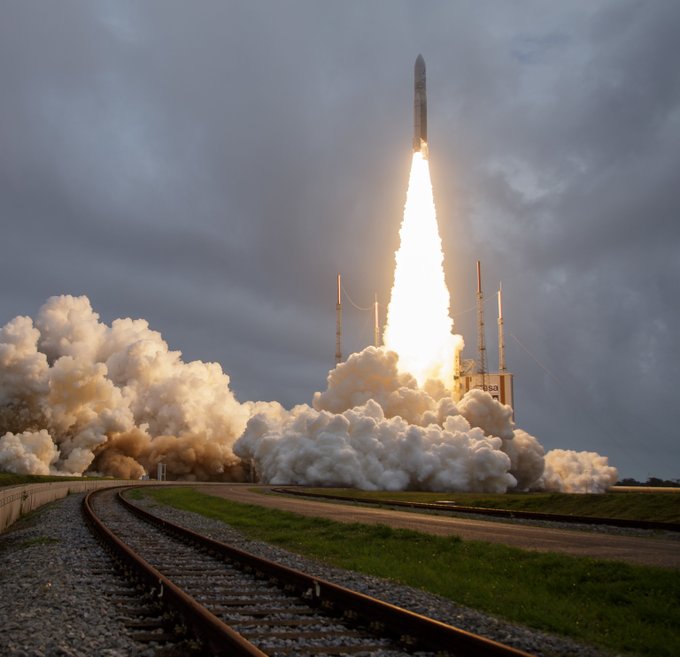Last Updated on December 27, 2021 12:17 pm by INDIAN AWAAZ

WEB DESK
World’s largest and most powerful space telescope has been launched successfully into orbit to make breakthrough discoveries on the origins of the Universe and Earth-like planets beyond our solar system.
The James Webb Space Telescope, NASA’s premier space observatory of the next decade, launched in an Ariane rocket from the European Space Agency’s base in French Guiana on Christmas Day.
The Webb telescope will reach its destination in solar orbit some 1.5 million km from Earth – about four times farther away than the moon. And Webb’s special orbital path will keep it in constant alignment with the Earth as the planet and telescope circle the sun in tandem.
It will see farther into our origins, from the formation of stars and planets, to the birth of the first galaxies in the early Universe. It intends to show humans what the Universe looked like even closer to its birth nearly 14 billion years ago.
Webb, named after one of the architects of the Apollo Moon landings, is the successor to the Hubble telescope. Jointly built by NASA, the European Space Agency, and the Canadian Space Agency, the new observatory is, however, 100 times more powerful.
NASA Administrator Bill Nelson called Webb a time machine that will provide a better understanding of our universe and our place in it, who we are, what we are, the search that’s eternal. We are going to discover incredible things that we never imagined, Nelson said shortly after the launch.
